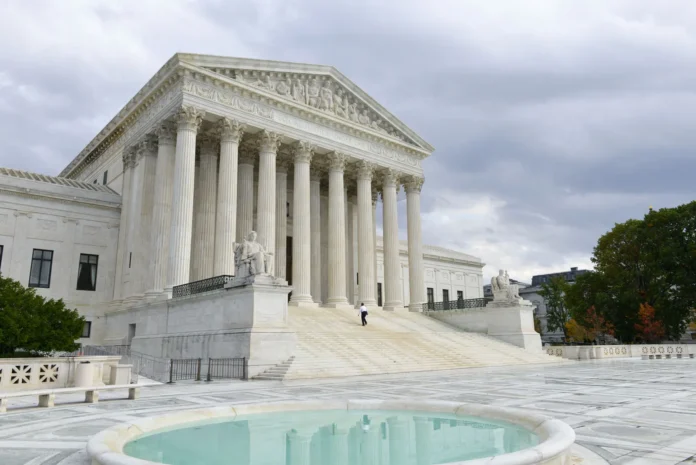In a major development that could reshape U.S. immigration policy, the Supreme Court has handed former President Donald Trump a significant legal victory. In an 8–1 ruling, the Court overturned a lower court’s injunction that had blocked the administration from ending the Temporary Protected Status (TPS) program for hundreds of thousands of Venezuelan migrants currently living in the United States.
The decision effectively clears the way for the administration to revoke the special legal protections granted during the Biden era, allowing immigration officials to proceed with removals that had been previously halted.
Justice Ketanji Brown Jackson was the sole dissenter in the ruling.
The Court’s Decision
The high court found that the lower court had overstepped its authority by preventing the executive branch from changing or revoking TPS designations—decisions the majority said fall under presidential and Department of Homeland Security discretion.
U.S. Solicitor General John Sauer, representing the Trump administration, argued that the initial injunction “intruded on the President’s ability to exercise sensitive and foreign-policy-laden judgments related to immigration.” The Supreme Court agreed, emphasizing that immigration policy decisions, particularly those involving TPS, are deeply intertwined with diplomatic considerations.
The Court’s decision reverses a March ruling by U.S. District Judge Edward Chen of California, who had blocked DHS from implementing Secretary Kristi Noem’s February memo ending Venezuela’s TPS status. Judge Chen had described parts of DHS’s justification as “unfounded and replete with discriminatory overtones.”
What Is Temporary Protected Status?
Temporary Protected Status, or TPS, was created to allow nationals from certain countries facing armed conflict, natural disasters, or other extraordinary conditions to remain and work legally in the United States for a limited period.
Venezuela first received TPS in March 2021, under then–Secretary of Homeland Security Alejandro Mayorkas, who cited “extraordinary and temporary conditions” preventing Venezuelans from safely returning home. The designation was renewed twice during the Biden administration—most recently extended in January 2025 for another 18 months.
However, when Secretary Kristi Noem took over DHS under President Trump, she announced that the country no longer met the criteria for TPS. Her February 2025 memo stated that the program would end in April, arguing that Venezuela’s conditions had improved enough to allow for repatriation.
The Broader Impact
The Supreme Court’s ruling now allows DHS to move forward with rescinding the TPS designation. This decision could impact approximately 300,000 Venezuelan nationals who had been living and working legally in the United States under the program.
According to DHS data, more than 527,000 people have been formally deported since President Trump took office in January 2025, with an additional 1.6 million individuals voluntarily leaving the country—figures that represent a sharp increase from prior years.
The administration says the decision provides a legal foundation to continue what it calls a “return to lawful immigration enforcement.” Officials expect the number of removals to rise further as additional resources are allocated to border security and immigration courts.
A Divided Reaction
The Court’s decision has already sparked intense political debate. Supporters of the ruling argue that it restores executive authority over immigration and ensures that humanitarian programs like TPS are not used indefinitely.
Critics, however, warn that the move could place thousands of families at risk of deportation to a country still struggling with economic hardship and instability. Human rights advocates have urged the administration to reconsider, pointing to ongoing shortages and safety concerns within Venezuela.
Justice Ketanji Brown Jackson, in her dissent, argued that the majority had “disregarded the humanitarian intent of TPS” and warned that the decision “risks undermining the nation’s long-standing commitment to protecting individuals fleeing dangerous conditions.”
What Happens Next
With the ruling in place, DHS is expected to issue formal guidance outlining how the rollback of TPS protections will proceed. Migrants affected by the decision may have limited legal options, though immigration attorneys say challenges could still arise at the state and federal levels.
While the Trump administration celebrates the ruling as a validation of its immigration policies, the long-term effects—both humanitarian and political—are yet to be seen.
For now, the Supreme Court’s decision marks a decisive moment in the ongoing national debate over immigration, executive power, and America’s role in offering refuge to those in crisis.



